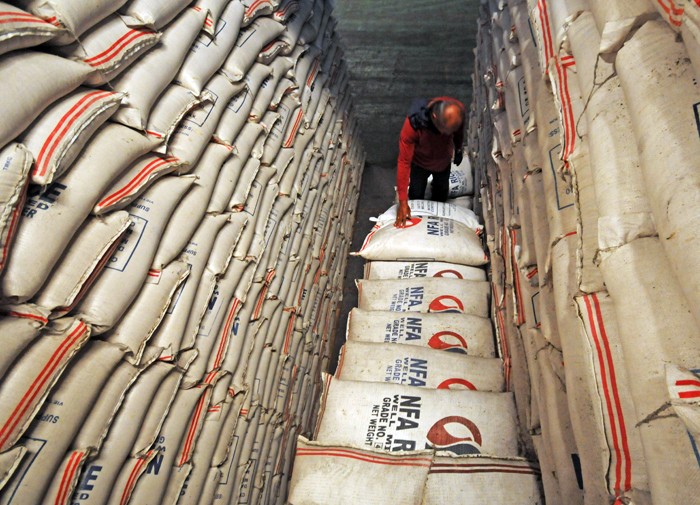- Rice Smuggling: FG to Shut Border With Neighbouring Country
The Federal Government stated on Monday that it would shut Nigeria’s land border with a neighbouring country in few days’ time in order to halt the smuggling of rice into the nation.
Although it did not disclose the identity of the neighbouring country, the government stated that the nation in question had been extensively used for the illegal movement of foreign rice into Nigeria, a development that had impacted on the economy adversely.
The Minister of Agriculture and Rural Development, Chief Audu Ogbeh, who made the announcement at a leadership event for youths under the auspices of Guardians of the Nation International in Abuja, stated that the decision to close the land border had become necessary in order to encourage local production of rice and sustain the nation’s economy.
He said, “Our other problem is smuggling. As we speak, a neighbour of ours is importing more rice than China is importing. They do not eat parboiled rice; they eat white rice, and they use their ports to try and damage our economy. I am telling you now because in a few days, you will hear that the border has been shut; we are going to shut it to protect you, us and protect our economy.
“You will start seeing all sorts of negative things on the Internet. Let me tell you why we need to shut the border. I grow rice; I was the first Nigerian to mill rice free of stones. If you plant rice on certain parcels of land, some poisonous materials get into the rice.”
He added, “There are three kinds of water in their natural state; there is fresh water from the river, salt water from the sea, and blackish water. If you go to the delta in many countries, in South East Asia where they grow the rice, if you plant rice in the same place for like four to six years continuously, the quantum of arsenic begins to increase.
“Arsenic causes cancer and that is what they are dumping for us. Some people say they prefer Thai rice because they are very sophisticated; welcome to poison!”
When contacted to reveal the country being referred to by Ogbeh, the minister’s Special Assistant on Media, Dr. Olukayode Oyeleye, stated, “For him not to have mentioned the name of the neighbouring country in question is a strategic move.
“I believe when it is right to have the name mentioned, you will know. But for now, take it as he said. The fact remains that the country in question is Nigeria’s neighbour as he explained.”
Ogbeh stated in his speech at the event that the Federal Government had reduced rice importation by 95 per cent and increased the number of rice farmers from five to 30 million within a period of two years.
According to him, states like Anambra, Ebonyi, Kebbi, Kano, Jigawa and a few others are doing well in rice production.
Meanwhile, the Nigeria Customs Service on Monday expressed its readiness to enforce the closure of the nation’s border with neighbouring countries to check rice smuggling.
The Public Relations Officer, NCS, Mr Joseph Attah, said this in a telephone interview with one of our correspondents in reaction to the announcement by Ogbeh that the border with a neighbouring country would be shut in a matter of days because the unnamed country was serving as a conduit for the smuggling of imported rice into Nigeria.
According to Attah, the service is ready to enforce the planned closure of the border once it is announced by the Federal Government.
He stated, “We are very prepared to enforce the closure if it is announced. Once the border is closed, that is total blockade, and you don’t have any other reason to penetrate (Nigeria).
“We are prepared to enforce the fiscal policy of the Federal Government. We will enforce the closure, and if there is a need to get any of our sister security agencies to join in the enforcement, I am confident that they will be quite willing to join in the national enforcement.”

 Naira3 weeks ago
Naira3 weeks ago
 News4 weeks ago
News4 weeks ago
 Naira4 weeks ago
Naira4 weeks ago
 Naira3 weeks ago
Naira3 weeks ago
 Jobs3 weeks ago
Jobs3 weeks ago
 Travel3 weeks ago
Travel3 weeks ago
 Naira3 weeks ago
Naira3 weeks ago
 Investment4 weeks ago
Investment4 weeks ago






























